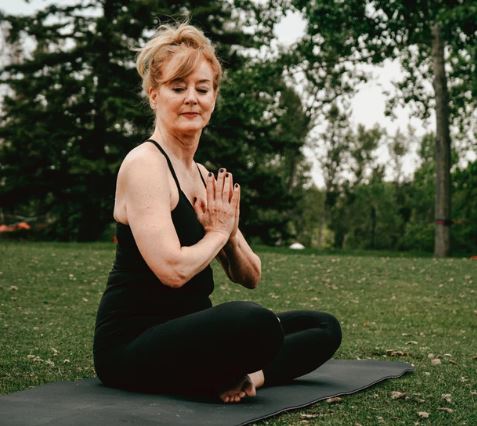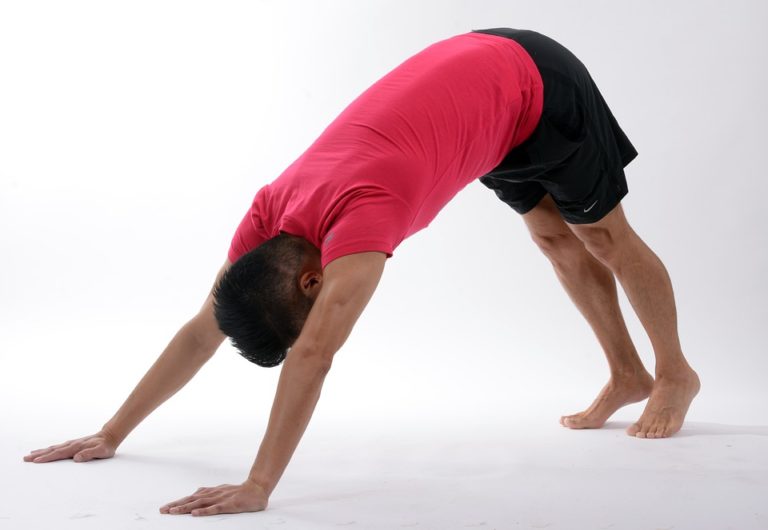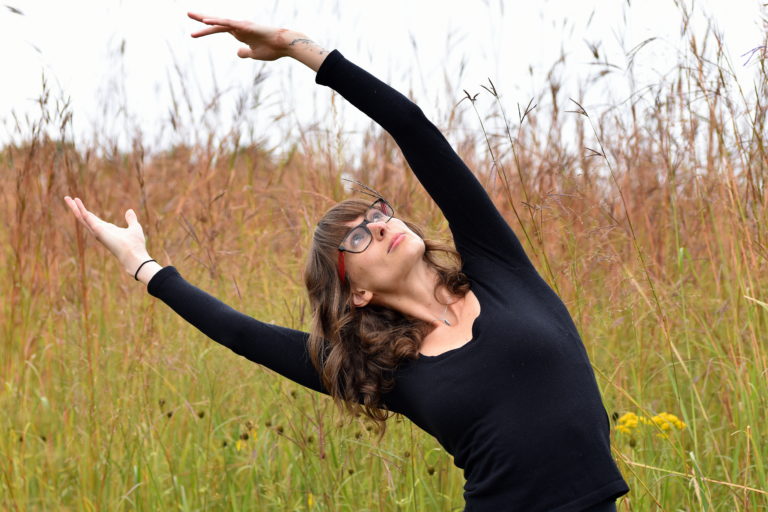
Therapeutic Yoga Instruction
Body and Soul Alignment

Bringing Yoga Into Therapy
Our bodies keep the score of past hardships, traumas, and hurt. Often, we feel the continuing effects of our past in the form of elevated stress, frequent illness, mental health struggles, chronic pain, or addiction. Yoga can assist people in repairing neurophysiological effects of trauma or chronic stress, increasing our ability to modulate our stress response, and in managing emotional and physical symptoms.
When offered alongside conventional therapy, yoga can create a more complete therapeutic experience, ultimately enabling fuller participation in healing and in life. While conventional therapy can help people to think about, talk about, and imagine what healing would be like, yoga can offer a felt sense of empowerment, safety, and connection. Furthermore, because yoga helps regulate the nervous system, it can also help us to recover from difficult therapy sessions and stressful life events.
Specific benefits of bringing yoga into or alongside therapy include:
Gently building tolerance for feeling and working through difficult emotions and physical sensations;
Strengthening connection to the present-moment, which helps us to stay grounded during therapy and to enjoy life more deeply outside of therapy sessions;
Cultivating a sense of safety in our own bodies so that they may be homes for healing and growth;
Processing past experiences in the parts of the brain and body where trauma is held but is not accessed verbally, enabling us to see faster progress in our therapeutic goals.

Yoga For Trauma Recovery & Resiliency
Trauma Center Trauma Sensitive Yoga (TCTSY) is designed to assist people living with complex trauma. Beyond a single-incident traumatic experience, complex trauma results from chronic and relational coercion, violence, abuse, or neglect. Drawing from trauma theory, attachment theory, and neuroscience, TCTSY is designed to support trauma recovery by cultivating empowerment, self-awareness, internal rhythms, and present moment experience.
Click the links for more about trauma; yoga for trauma resiliency, therapeutic foundations of TCTSY, and research on the validity and effectiveness of TCTSY.
TCTSY can be most useful for people coping with:
childhood abuse
domestic violence
historical trauma
incarceration
intergenerational trauma
sexual violence
systemic oppression (such as: racism, sexism, homophobia, xenophobia, etc.)
torture
violent crime
war or other civil violence
I especially enjoy offering TCTSY to individuals, couples, and groups who are facing the aftermath of past traumas or difficulties and who are interested in building renewed safety in their bodies, intimacy with themselves and others, and cultivating space for new possibility.
Trauma Center Trauma Sensitive Yoga In Practice
Unlike studio yoga, TCTSY is a way to invite individuals to explore being in their bodies. Each of us has a history, and that history comes to yoga with us. My role as a facilitator is to be sensitive to your experience and offer invitations, not prescriptions. Whether we are moving only our fingers or our whole bodies, each yoga form is an opportunity to notice sensations and explore making choices. You might make different choices than I or the person next to you; that’s great! You are the expert in your body; I am here to support your own healing and growth.
Because our past harms and distress live in our bodies, we begin with a 30-minute consultation in which we talk about both your concerns and sources of resiliency. However, you don’t need to re-tell your story in order to practice yoga together and see therapeutic benefits!
We will talk briefly about:
your interest in yoga;
any worries or questions you have about yoga or about me;
what you are hoping to get from the practice;
your experience with other forms of movement and breathwork (none required);
what it is like for you to live with trauma or other mental or physical health concerns;
what internal and external sources of support you have to draw from after leaving a yoga session.
From here, we co-create a yoga practice that is specific to your intentions, history, and requests. You might prefer yoga sitting, standing, or lying down, or you might know of specific movements that don’t work for you. With your guidance, I create a yoga experience that is (hopefully!) accessible to and helpful for your body, mind, and spirit through individualized degrees of movement, stillness, attention to breath, and opportunities for meditation and/or self-reflection.


Individual Goals for Yoga Healing and Resiliency
For me, yoga has been a place to nourish health, build strength, touch joy, and ultimately live more fully. However, each person and session will be different, and it is enough to show up and explore being however you are in this moment. Still, some common benefits of trauma-sensitive yoga include:
Greater awareness of my thoughts, emotions, and body sensations;
A kinder relationship to my body and self;
Increased strength and flexibility;
Less physical pain;
Better sleep;
Improved posture;
Reduced stress and anxiety;
Greater connection to the present moment;
A sense of expansion and empowerment;
Greater sense of ease, restfulness, and relaxation;
Increased ability to make decisions based on how I feel and what I want;
Deeper connection to myself, others, life, God/spirit.
Despite the stereotype, there is no requirement to feel good or to ‘relax’ during yoga. Indeed, being in our bodies is brave and often quite difficult. It is completely normal to have a full range of emotions and responses, and you are welcome however you are!
Also, yoga is inclusive to everyone. Despite stereotypes that yoga is difficult because of poses or that you have to look a certain way or wear certain clothes, that is simply not the case. Yoga is geared toward people of all shapes and sizes, yoga is all inclusive and I will help you feel more comfortable within your body. Please don’t be afraid of yoga instead let’s work together in a space of comfort.
If you would like to create a yoga practice together to honor your history and support your goals, schedule a free consultation.






